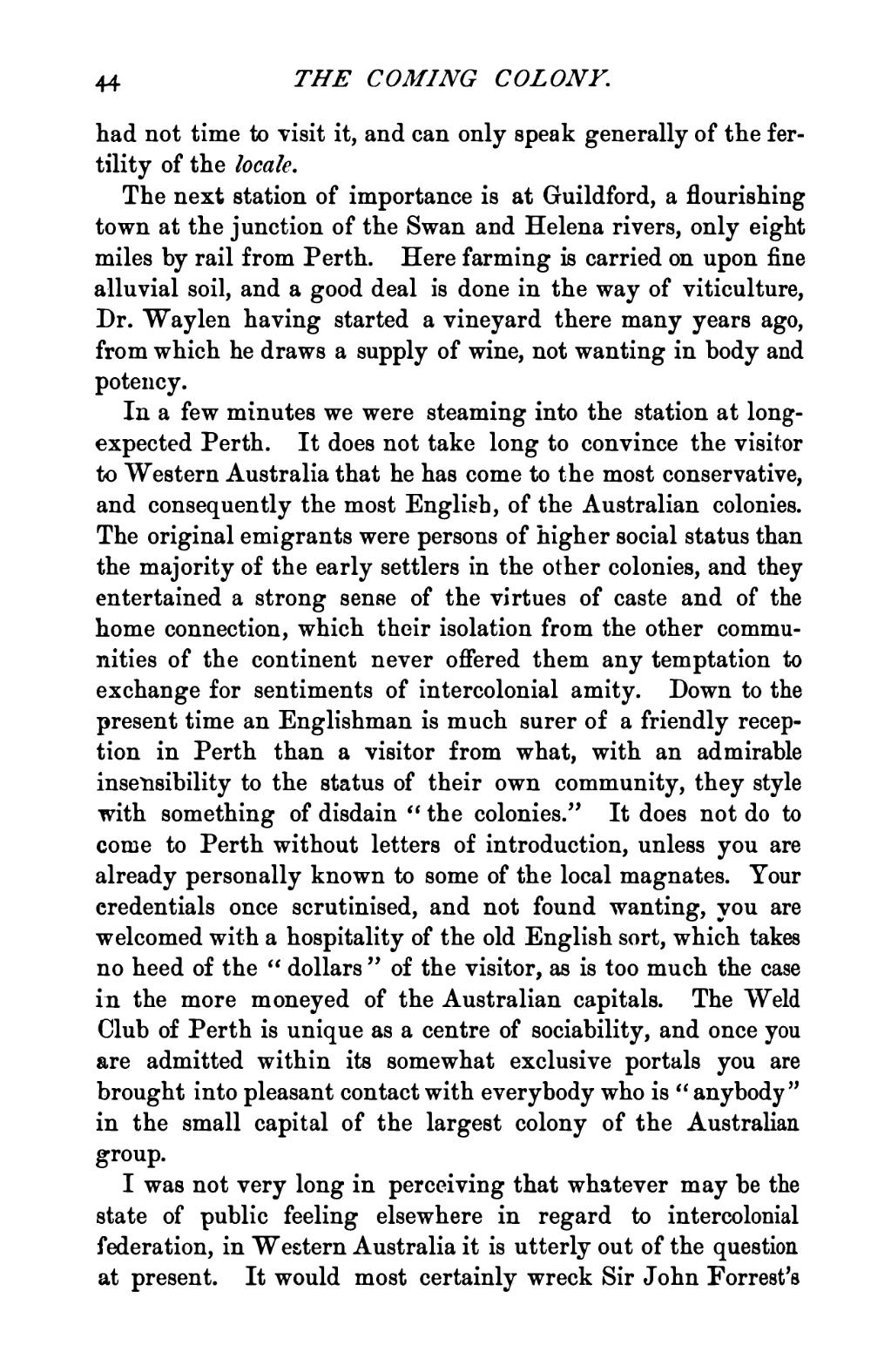had not time to visit it, and can only speak generally of the fertility of the locale.
The next station of importance is at Guildford, a flourishing town at the junction of the Swan and Helena rivers, only eight miles by rail from Perth. Here farming is carried on upon fine alluvial soil, and a good deal is done in the way of viticulture, Dr. Waylen having started a vineyard there many years ago, from which he draws a supply of wine, not wanting in body and potency.
In a few minutes we were steaming into the station at long expected Perth. It does not take long to convince the visitor to Western Australia that he has come to the most conservative, and consequently the most English, of the Australian colonies. The original emigrants were persons of higher social status than the majority of the early settlers in the other colonies, and they entertained a strong sense of the virtues of caste and of the home connection, which their isolation from the other communities of the continent never offered them any temptation to exchange for sentiments of intercolonial amity. Down to the present time an Englishman is much surer of a friendly reception in Perth than a visitor from what, with an admirable insensibility to the status of their own community, they style with something of disdain "the colonies." It does not do to come to Perth without letters of introduction, unless you are already personally known to some of the local magnates. Your credentials once scrutinised, and not found wanting, you are welcomed with a hospitality of the old English sort, which takes no heed of the "dollars" of the visitor, as is too much the case in the more moneyed of the Australian capitals. The Weld Club of Perth is unique as a centre of sociability, and once you are admitted within its somewhat exclusive portals you are brought into pleasant contact with everybody who is "anybody" in the small capital of the largest colony of the Australian group.
I was not very long in perceiving that whatever may be the state of public feeling elsewhere in regard to intercolonial federation, in Western Australia it is utterly out of the question at present. It would most certainly wreck Sir John Forrest's
